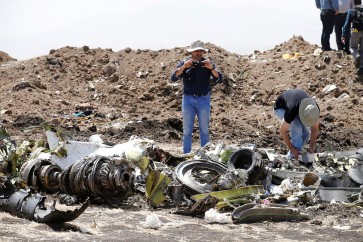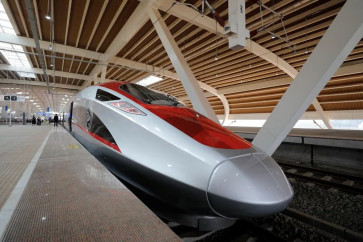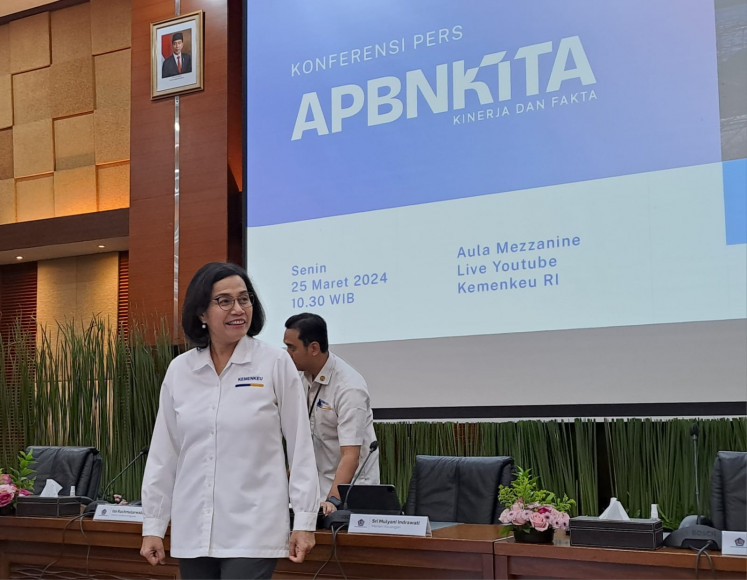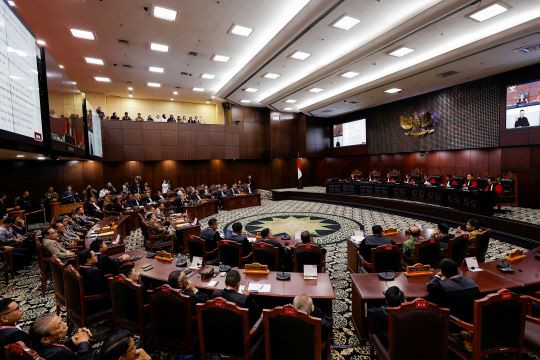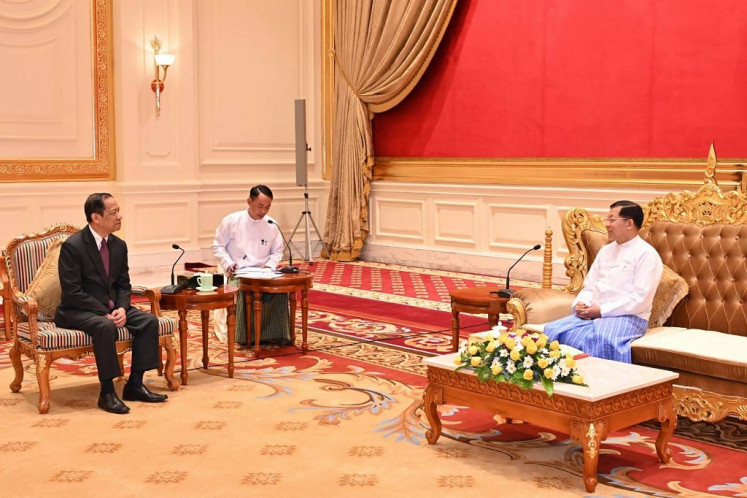Resurging Islamic politics?
During the New Order era and the ensuing Reform era, Islamic parties only played second fiddle behind nationalist competitors.
Change Size
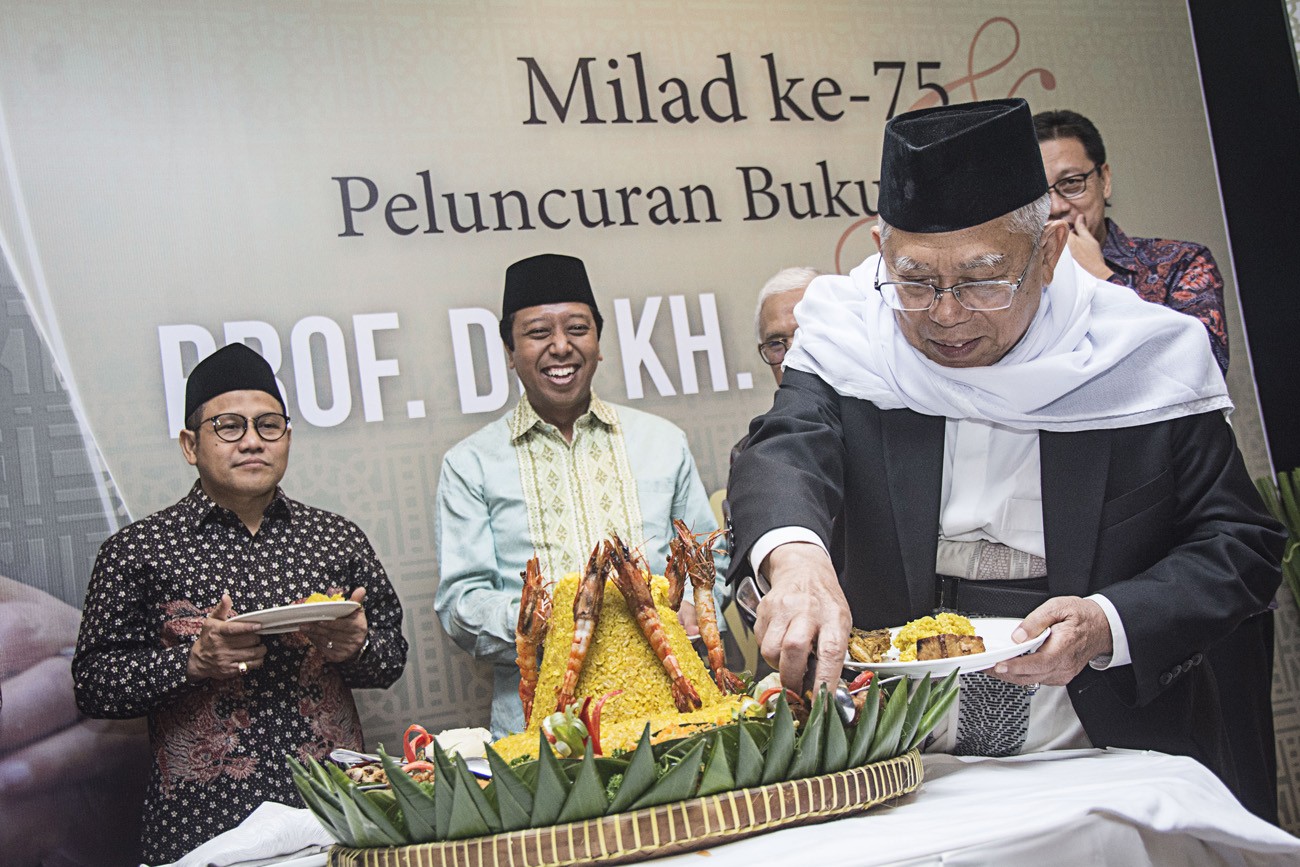
I
t is not an exaggeration if many consider the recent declarations of the Masyumi Party and the Ummah Party yet another signal of a resurgence of Islamic politics in the country. Given that Indonesia has the largest Muslim population in the world, it is just natural to expect Islamic based parties to rule the roost.
History shows, however, that no Muslim-based party has ever won an election. The best-performing Islamic parties so far, Masyumi and Nahdlatul Ulama, finished second and third, respectively, in the 1955 election, the first democratic election ever held in Indonesia. During the New Order era and the ensuing Reform era, Islamic parties only played second fiddle behind nationalist competitors, such as Golkar, the Indonesian Democratic Party of Struggle, Gerindra and once in a while the Democratic Party.
The most recent legislative election, held in 2019, saw the established Islamic parties – the National Awakening Party (PKB), National Mandate Party, United Development Party, Prosperous Justice Party and Crescent Star Party – altogether win only 30 percent of the vote. The PKB led the pack of the parties but finished only fourth overall. The so-so achievement contradicts the fact that the PKB and PAN claim to represent the aspirations of respectively Nahdlatul Uama and Muhammadiyah, the country’s largest Muslim groups.
Despite the use of narratives and symbols that Muslim voters are familiar with, the Islamic parties could not win the hearts and minds of the majority of the electorate. Some even have tried in vain to sell the idea of formalizing the sharia in the country, as evinced in the efforts to restore the Jakarta Charter, which acknowledged sharia as part of the state ideology Pancasila.
The 2019 elections were supposed to give a boost to the Islamic parties’ showing if it was true that Islamic conservatism was creeping in, especially after the 212 Movement, which exploited Islamic identity not only to depose Jakarta’s Christian and ethnically Chinese governor Basuki “Ahok” Tjahaja Purnama in 2017, but also to oppose President Joko “Jokowi” Widodo’s reelection bid last year.
Still, the big marketplace belongs to the nationalist-secular parties that promote diversity and therefore are open to all, both Muslims and non-Muslims. As some scholars say, the nationalist parties are just pragmatic, so that they can play the Islamic card as well as their Islamic-oriented rivals. It is already a public secret that sharia-inspired bylaws in many regions were initiated by nationalist parties just to woo Muslim support.
Such pragmatism was also at play when some nationalist parties retracted their support for the Pancasila ideology bill after it had sparked backlash from particularly mainstream Muslim groups earlier this year.
It is, therefore, too early to expect the new Islamic parties to dramatically change the national political landscape. The Masyumi Party, the Ummah Party and previously the Gelora Party emerge at a time when the market is already crowded and will have to fight not only other Muslim parties but also nationalist-leaning parties in luring the Muslim vote.
After all, more parties, regardless of their ideologies, will arise ahead of the 2024 elections, which is fine as voters will have more options.

